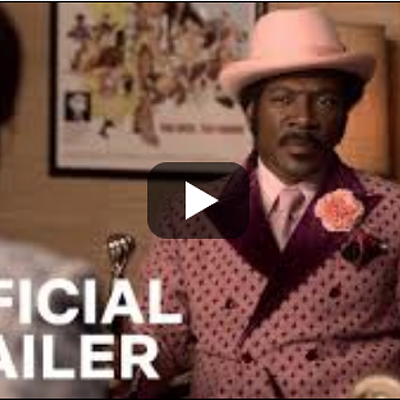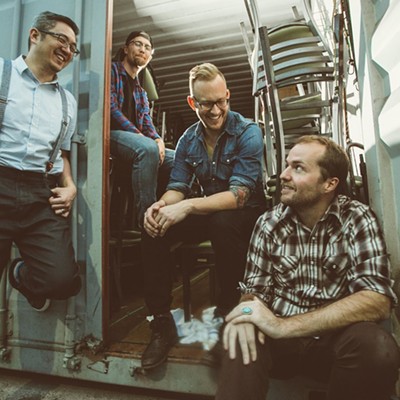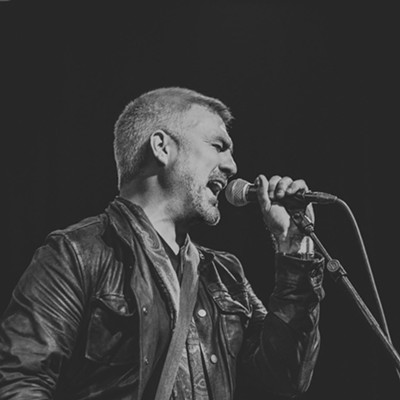But for the purposes of this tale, Minnesota's Twin Cities are the unlikely spawning ground of an increasingly popular form of hip-hop--underground, the antithesis of the coastal "pimpin'" styles with all their overblown "bling" that, in its own parlance, is on the verge of "blowin' up."
And at the center of the explosion is one Sean Daley, aka Slug (for "Little Sluggo" or "Sean Loves Ugly Girls," depending on who you ask), a charismatic and cunning linguist who spins tales of both conquest and rejection from behind the mic as the MC for pioneering independent rap group Atmosphere.
This heretofore heretical willingness to volunteer vulnerabilities that Slug has made his signature is often likened to its underground equivalent in rock--so-called "emo," a term that originally described a very specific style of cry-your-eyes-out punk rock, but has now come to be used to describe anything vaguely whiny by lazy critics (most notoriously, Dashboard Confessional).
Hip-hop "emo," by contrast, isn't so much overtly emotional (although "Fuck You Lucy," on Atmosphere's 2002 LP God Loves Ugly is devastatingly raw) as it is notable for its contrast to mainstream rap in terms of its perspective. And this is why it's embraced so tightly by the type of kids who populate the crowd at the Vans Warped Tour (which Atmosphere was invited to join this summer) or why there're so many attractive, cool girls at an Atmosphere show, although Slug'll tell you different.
"It's because I'm a piiiimp!" he says, and despite this writer's goofy audio connection for the interview, the tongue Slug has planted in his cheek is audible.
Seven's Travels was released on Sept. 23, the fourth full-length from the entomological combo of Slug and his producer Ant (Anthony Davis). After a pseudo-bidding war, in which Slug insincerely demanded $10 million and full distribution for his RhymeSayers record label (home to all Atmosphere releases and protégé Eyedea, among others), Atmosphere eventually settled on punk label Epitaph for the release of Travels.
"It's a one-off deal, and if I like it, and if they like it, we may do another one. But I keep my masters." And of course, part of the antipathy toward the major labels may have to do with maintaining the ever-important street cred--how does someone who once rapped "fuck the major labels 'til they limp" ever sign with one?
For all that Slug brings to the table as a lyricist and as a presence, what will win converts this time out is the much fuller sound achieved by Ant. Sparseness of beat had previously been somewhat of a signature, but on Seven's Travels, the bright, intricate production leaps out of the speakers. As Slug tells it, each record is a game of one-upsmanship, and this time, Ant got the better of him.
"He was trying to out-do me. That's what we do, and I think he beat me this time. But you wait 'til the next one comes; I'm gonna fuck his shit up."
Fairly standard hip-hop tropes are present, but are utilized in innovative ways. "Denvemolorado" uses an unusual combination of inorganic orchestral synth strings, organ and soul vocal interjections to create profound melancholy as the canvas upon which Slug paints a rumination on whether or not to "hang myself/ from the rafter that's over my bed." "Good Times (Sick Pimpin')" sounds, musically at least, nicked from Isaac Hayes.
Perhaps the most interesting aspects of Atmosphere are all the cultural implications that can be gleaned from the explosion of an underground phenomenon, and how such a phenomenon plays out at the intersection of "black" and "white" youth culture. Each release has seen an ever-greater groundswell of interest, and this tour will take the RhymeSayers crew (Slug, Mr. Dibbs--the traveling DJ, as Ant is too misanthropic to tour--Brother Ali, Oddjobs, and Micranots) past the critical mass point of a so-called "underground."
As someone who likes to connect with his audience and be accessible and personable and "real," Slug is concerned about the entity of Atmosphere getting even more beyond his control than it is now.
"I understand that my role in this is really not that big. It's really cool that I have a publicist who gets me interviews and shit, because that makes me feel special, but when it comes down to it, I am a very small fraction of the puzzle for these kids. I'm just this dude who shows up and raps for an hour. I got nothin' to do with what they're going to do when they leave that venue. I just want to provide an environment for them to get to know each other, 'cuz they're gonna have to deal with each other for the next year."
The grandson of an African American jazz musician and an Irish pub proprietress, Sean Daley never had the luxury of ignoring race or class during his upbringing in South Minneapolis. This sensibility that stems from being in between two worlds informs all that he's done. It's what gives him the ever-elusive gravitas of "cred." Slug is stoic and wise about his largely white audience, contrasted with the vitriol of a peer like Eminem, who, as is evidenced by the polemic "White America" on The Eminem Show, resents the fact that most of his fans are white kids. While Slug doesn't have a "white kid" upbringing, he embraces that part of his fan base while knowing from his own experience the significance of reaching out to everyone.
"The urban audience needs to hear some of these things. There's a lot of depressed people--especially kids, man, who ain't got shit ... Here's the thing--kids that grow up in well-to-do homes, even though their lives are fucked up too ... it's a different kind of fucked up, and a lot of them are still allowed the opportunity to soul-search and find their identity at a good age. Whereas a lot of inner-city kids don't get to do that, because they're too busy trying to take care of themselves at that age, so they don't really get to go find the answers to life in a book, or a film or an album the way some kids that are in better-to-do families get that opportunity ... I want the kids who grew up like I grew up to have the chance that I got."
Getting back to the aforementioned bleach-blond Oscar winner, Slug feigns no surprise when asked about parallels between himself and a certain Marshall Mathers.
"I grew up hip-hop in Minneapolis, which is probably similar to growing up hip-hop in Detroit ... broken home ... yada yada yada. I think a few years ago, we were closer than we are now (stylistically) because he's a rapper's rapper, dude. He raps his ass off. That dude has got rhymes comin' out of his fuckin' pores, whereas I don't really care about being Mr. Lyrical Superhero Genius. I'll sacrifice how fresh the rhyme is in order to make a point."
When it's pointed out that this characterization is on the modest side for someone who once rhymed "From the top of Fiji/ To the bottom of Christina Ricci/ Big ups if you bought my CD," Slug is gracious, but reiterates: "He does things a lot of us can't do."
Hard to believe that there's been so little discussion of Slug's love for women, ugly and otherwise, and their affinity for him, throughout these many words. But he was cornered into one exclusive, never before non-admission admission: It's well known that he's got a Christina Ricci fixation that borders on obsessiveness. He and Murs of the Living Legends crew did a tribute album to Ricci entitled Felt. They're planning a follow-up tribute to Meadow Soprano (Jamie-Lynn Sigler) on the "slight chance that one of us might get to fuck her. Worst case scenario: a cease-and-desist letter from her lawyer."
So did you ever meet her? "No, not Meadow."
No, I mean Christina.
"No comment. I've never said that before. I've never had the opportunity. Now I finally did."










